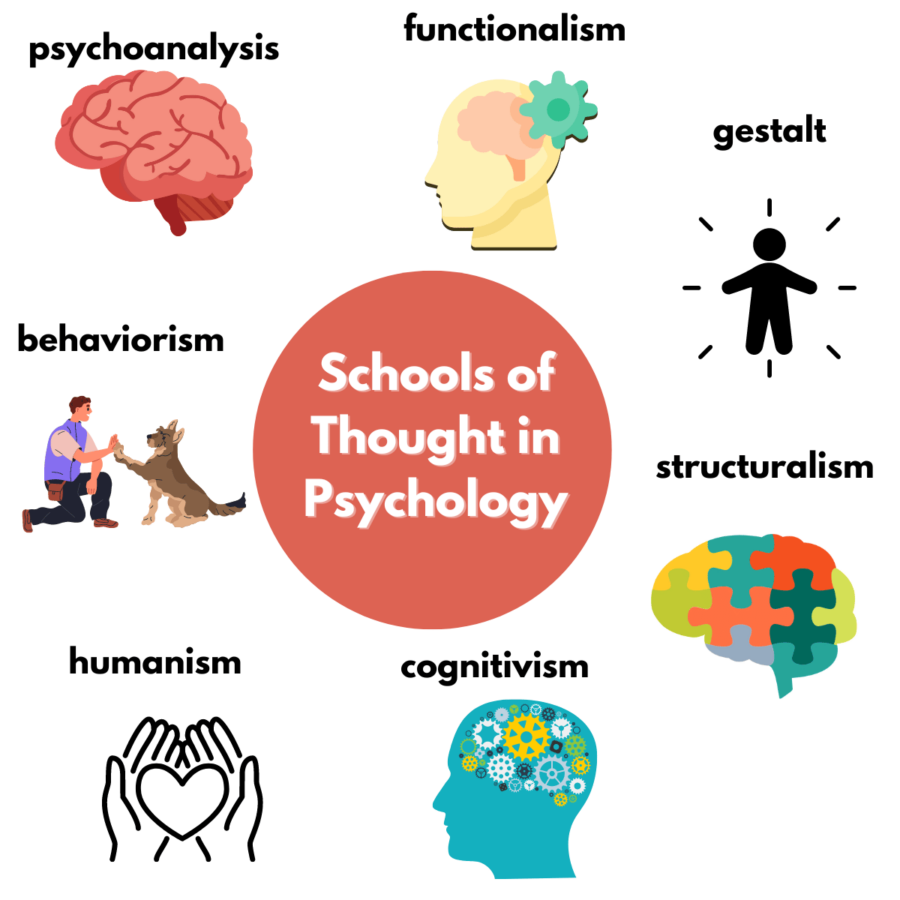The Subject Psychology (i) Definition of Psychology; science, social science
Summary of the Subject: Psychology
(i) Definition of Psychology
Psychology is often defined as the scientific study of mind and behavior. It can be categorized as a social science, given its focus on aspects of human interaction and community, although it incorporates elements of pure science through experimental and empirical methodologies.
Key schools of thought in psychology include:
-
Structuralism: Founded by Wilhelm Wundt, it seeks to understand the structure of the mind through introspection. Key figures include Edward Titchener who emphasized the analysis of conscious experience.
-
Functionalism: Championed by William James, this school focuses on the purpose of mental processes and how they help organisms adapt to their environment.
-
Behaviourism: Pioneered by John B. Watson, it emphasizes observable behaviors over inner mental states. B.F. Skinner expanded on this with the concept of operant conditioning.
-
Psychoanalysis: Founded by Sigmund Freud, this approach investigates the influence of the unconscious mind on behavior. Key concepts include defense mechanisms and psychosexual development.
-
Gestalt Psychology: Founded by Max Wertheimer and Kurt Koffka, it examines the human mind and behavior as a whole rather than in parts, stressing perception in context.
The modern eclectic approach in psychology combines insights from various schools to address complex human behaviors effectively.
(ii) Fields of Psychology
Psychology is divided into several fields, each focusing on specific aspects of human experience:
- Clinical Psychology: Focuses on diagnosing and treating mental illnesses and emotional disturbances.
- Counselling Psychology: Aids individuals in coping with life challenges and improving personal and interpersonal functioning.
- Developmental Psychology: Studies the psychological growth and changes that occur throughout life.
- Educational Psychology: Examines how people learn and the effectiveness of educational interventions.
- Organizational Psychology: Looks at behavior in work environments and the structure of companies.
- Social Psychology: Investigates how individuals are influenced by social contexts and interactions.
The general importance of studying psychology includes gaining insights into human behavior, improving mental health, and applying knowledge in various sectors, such as education and public health.
(iii) Heredity and Environment
Heredity refers to the genetic transmission of characteristics from one generation to another. Key concepts include chromosomes and genes, with dominant and recessive traits influencing development. The laws of heredity outline principles like uniformity (similar traits among offspring) and variability (diversity of traits).
'Environment' encompasses all external conditions that affect an individual, including social and physical factors. The interaction between heredity and environment is vital in shaping behavior, as illustrated by twin studies and adoption research, which investigate the relative contributions of genetics versus environmental influences.
Mental health conditions like Mental Retardation and Huntington’s Disease exemplify the role of heredity in behavior, while environmental factors influence how individuals cope with these challenges.
In summary, psychology integrates various approaches, fields, and theories to understand human behavior comprehensively, emphasizing the interplay of genetics and environment in shaping our psychological experiences and health.
For further exploration of the schools of thought in psychology, you may find the following links helpful:
- Verywell Mind on Schools of Psychology
- Study.com Introduction to Psychological Approaches
- Psychologist Manju Antil on Structuralism, Functionalism, and Behaviorism
These resources provide additional insights into fundamental concepts and figures within the discipline.
Sources
:max_bytes(150000):strip_icc()/psychology-schools-of-thought-2795247-01-76764cce15bd46118efb8779260aa571.png)

Related Questions
Work fast from anywhere
Stay up to date and move work forward with BrutusAI on macOS/iOS/web & android. Download the app today.
